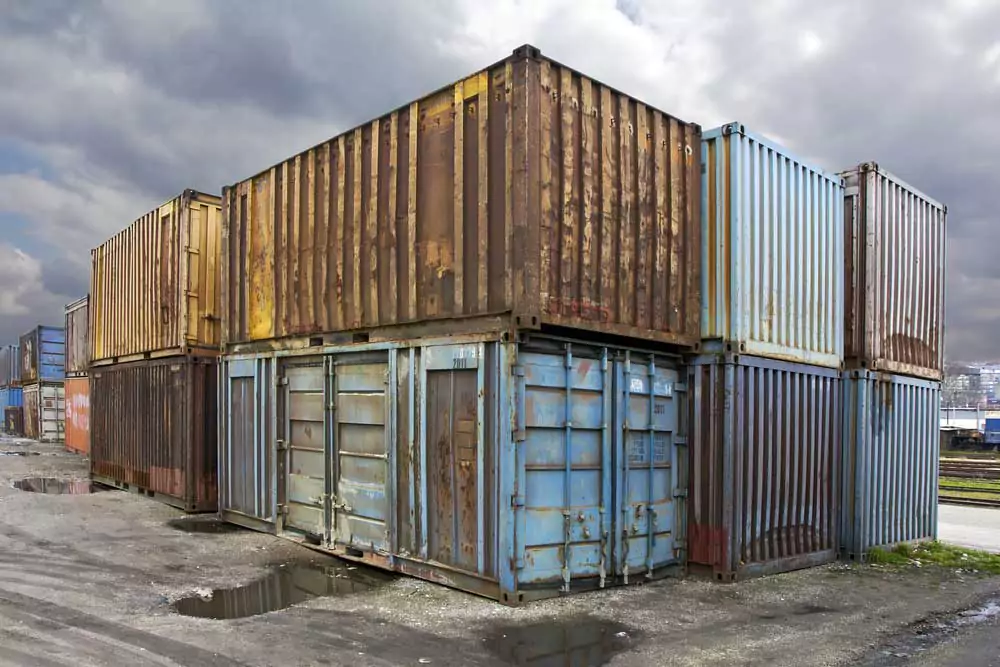



The (FIATA) International Federation of Freight Forwarders Associations defines abandoned goods refer to goods that the consignee (the importer or recipient) has shown no intention of collecting delivery within a reasonable period of time. This can happen in the following situations, consignee has shown no intention to take delivery, importer cannot be identified or contacted, importer has refused collection.

But what FIATA calls a "reasonable period". This period varies from country to country. In India, it's 30 days, in China it's 60 days, in the EU and Australia it's 90 days, and in the US it's six months.
Common reasons why an importer might not collect the goods they ordered:
Not satisfied with the product quality.
No import permit or license.
They have gone bankrupt.
Unable to pay import fees or other charges.
Shipment delay makes goods unnecessary.
Goods are damaged.
Customs issues (misdeclaration, wrong documents, etc.).
Sudden rule change prohibit the import.
Dispute with the exporter.
Abandoned goods are dealt with in one of the following ways:
They are confiscated and sold at auction.
They are destroyed – Especially if perishable, low-value, or hazardous.
They are scrapped for parts.
They are returned to the origin.
They are sent to another buyer.
A step-by-step guide to how abandoned goods are auctioned in India.
CFS custodian lists abandoned goods, sends it to customs.
Customs (within 10 days) tells custodian which goods can be auctioned (excluding those under investigation, needing permits, etc.).
Custodian (within 10 days) notifies importer to clear goods.
Custodian (within 20 days) inventories goods; customs checks 10%.
Custodian (within 7 days of inventory) requests NOC from customs.
Customs (within 15 days) issues NOCs for goods not needing other agency clearances/tests. Unfit goods are destroyed.
Custodian (within 7 days of NOC) values goods, sets auction date.
Bids at/above reserve price (or up to 5% below) are accepted. Unsold goods may have multiple auctions. Fourth auction sells to highest bidder.
Custodian files Bill of Entry.
Customs (within 15 days) assesses duty.
Buyer pays duty, collects goods.
Exporter / Importer: As the shipper / consignee / cargo owner, they are liable for abandoned goods.
Freight Forwarder: Liable if acting as "principal," not "agent."
Shipping Line: Liable if the freight forwarder isn't the principal, the shipping line is directly responsible as they have a contract with the shipper.
Right Of Lien: Shipping lines and freight forwarders can hold abandoned goods until debts are cleared.
Buyers no longer needed goods due to market slowdown and business losses.
Many abandoned items were likely perishable (e.g., food, pharmaceuticals) needing special transport and storage.
Delivery delays made short-shelf-life cargo unusable.
Shipping lines and freight forwarders can save themselves a lot of trouble with these preventive steps:
Work with reputable shippers. Verify the contracting party’s authenticity and financial stability. FIATA recommends insisting on original documents, using the company land line to communicate and verifying email addresses.
Be wary of scrap, waste, low-value, used, counterfeit goods, and personal effects, as they’re more likely to be abandoned.
Be cautious while accepting goods like electronics, used tires, and similar goods can be costly to discard.
Check sanctions and embargoes, especially at the destination port.
Confirm importer credentials.
Keep a record to identify risky shippers, cargo, routes, and hotspots.
Shipping lines can require export declarations before loading cargo.
For "Freight Collect" shipments, it’s a good idea to get written buyer confirmation.
Freight forwarders should include a provision on responsibilities for abandoned goods in contracts.
They can also protect themselves with Freight Forwarders Liability Insurance, which covers abandoned cargo.
Even with these precautions, it is sometimes impossible to avoid being saddled with abandoned goods. Here’s how to effectively deal with such a troublesome situation:
Notify the importer/exporter as soon as the free time is over. If they aren’t inclined to collect the cargo, demand immediate written instructions to change the buyer/destination or to abandon it. Clearly communicate their financial liability.
Speed is key. The longer you take to act, the higher the costs. If the associated costs exceed the value of the goods, selling them won’t solve your problem.
Consider cheaper storage options (off-dock facilities) to save on demurrage and detention charges.
Know the customs laws you are working with. As mentioned earlier, different jurisdictions have different rules. Exercising your right of lien might depend on both local laws and contract provisions. Your local agent can help you stay informed.
FIATA believes digitization is a solution to the abandoned goods crisis. It recommends, among others, easy-to-track smart containers and a digital contracting and communication system so that all parties can secure themselves right at the contract drafting stage.
With the pandemic still raging, lockdowns still a reality and economies still in the red, the abandoned cargo crisis isn’t going away any time soon. For now, preventive action seems to be the only safeguard against it.